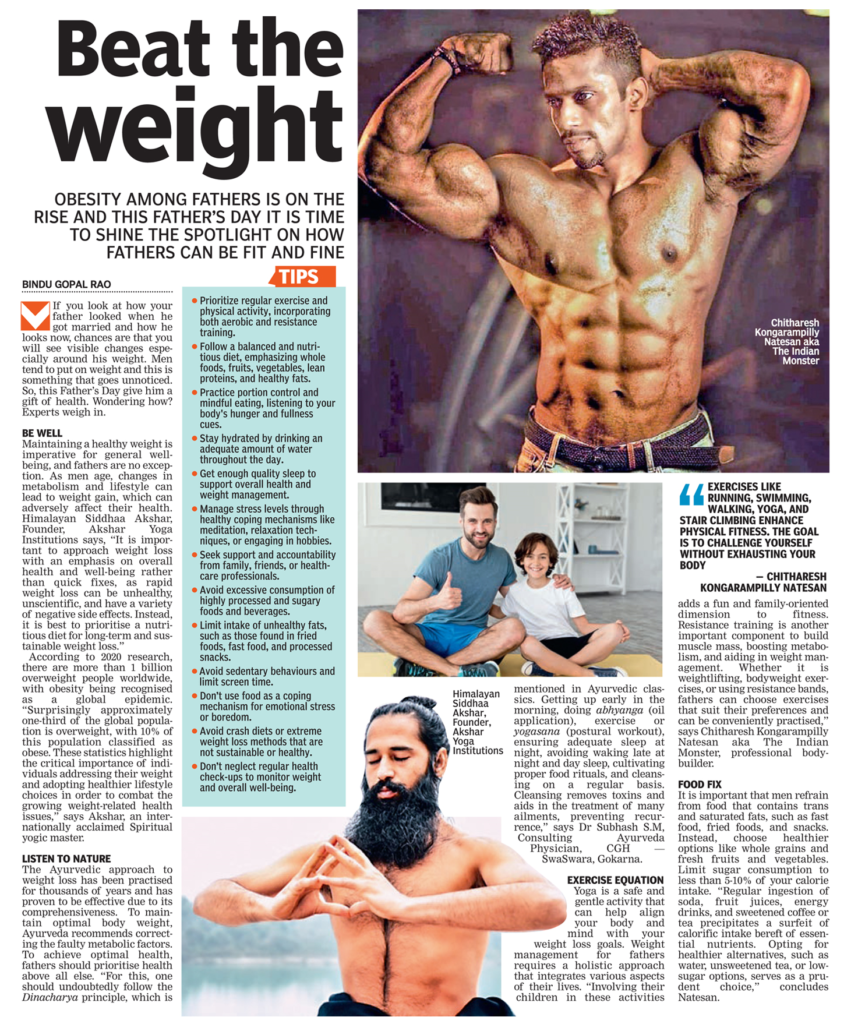Weight management for fathers requires a holistic approach that integrates various aspects of their lives. Fathers can start by incorporating regular aerobic exercise, such as jogging, cycling, swimming, or brisk walking, into their routines to improve cardiovascular fitness and burn calories. Involving their children in these activities adds a fun and family-oriented dimension to fitness.
Resistance training is another important component to build muscle mass, boosting metabolism, and aiding in weight management. Whether it’s weightlifting, bodyweight exercises, or using resistance bands, fathers can choose exercises that suit their preferences and can be conveniently practised at home or in a gym. In addition to exercise, fathers should pay attention to their nutrition by making mindful food choices.
Emphasizing fruits, vegetables, whole grains, lean proteins, and healthy fats while limiting processed foods and sugary snacks can support weight management goals. Meal planning and preparation in advance can assist in maintaining a balanced diet. Stress management is a crucial aspect often overlooked. Fathers should engage in activities like meditation, yoga, or pursuing hobbies to relax and cope with stress effectively.
Emotional eating can be curbed through these stress-reducing techniques. Lastly, seeking social support by connecting with other fathers who share similar goals can provide motivation, accountability, and a platform for sharing experiences and strategies. Joining support groups or online communities can foster a sense of camaraderie and help fathers stay on track with their weight management journey
The potential influence of cultural and societal factors are often overlooked in the context of obesity in fathers. Cultural norms, traditions, and societal expectations can play a role in shaping attitudes towards food, physical activity, and body image. In some cultures, there may be cultural practices or social gatherings that revolve around food, which can contribute to overeating or consuming calorie-dense foods.
Addressing obesity in fathers requires a culturally sensitive approach that respects and understands the unique challenges faced by different communities. Promoting education and awareness about healthy eating habits and the importance of regular physical activity within the context of specific cultural backgrounds can help fathers make informed choices and navigate cultural expectations.
Moreover, challenging societal stereotypes and expectations related to body image and masculinity is crucial. Men may face pressures to conform to certain ideals of masculinity that discourage them from seeking help, discussing weight concerns, or engaging in self-care practices. Encouraging open conversations about body positivity, mental well-being, and seeking support when needed can help fathers overcome these barriers and prioritize their health.
Read the full story that first appeared in Deccan Chronicle dated June 18, 2023 here:

